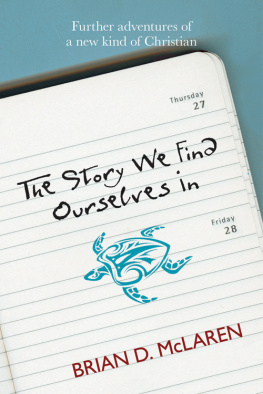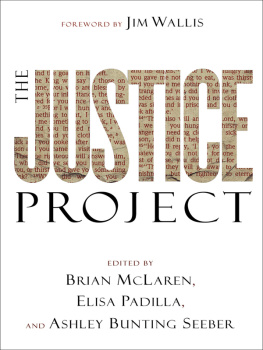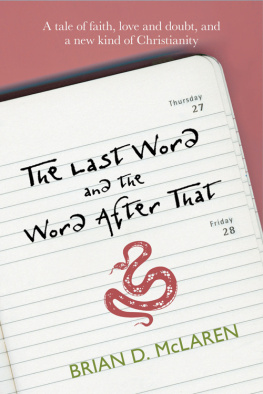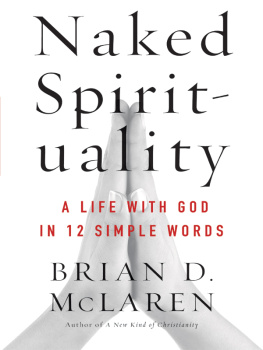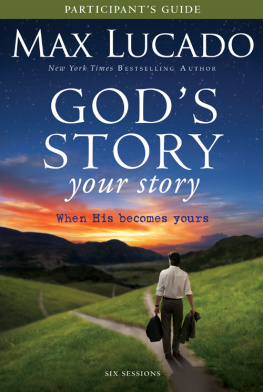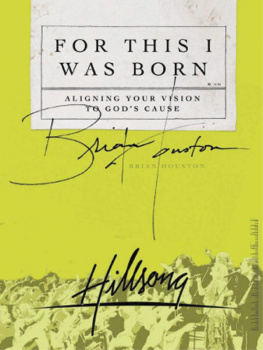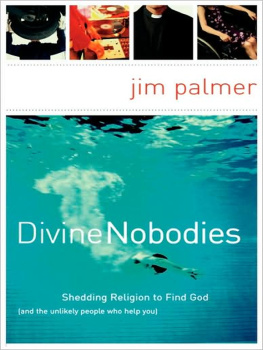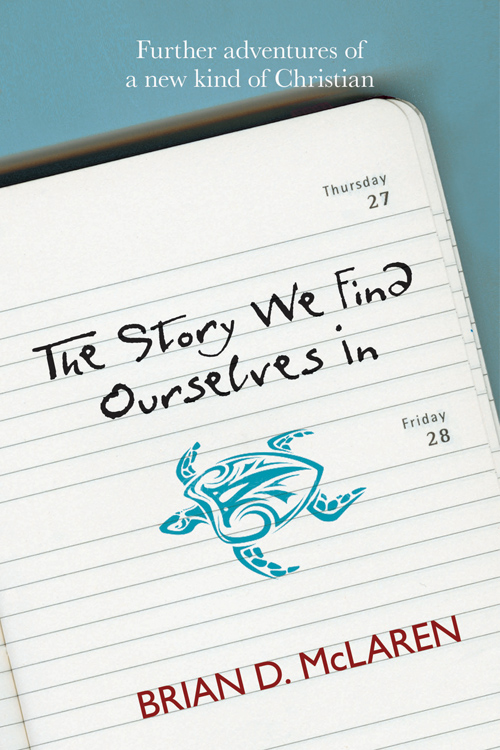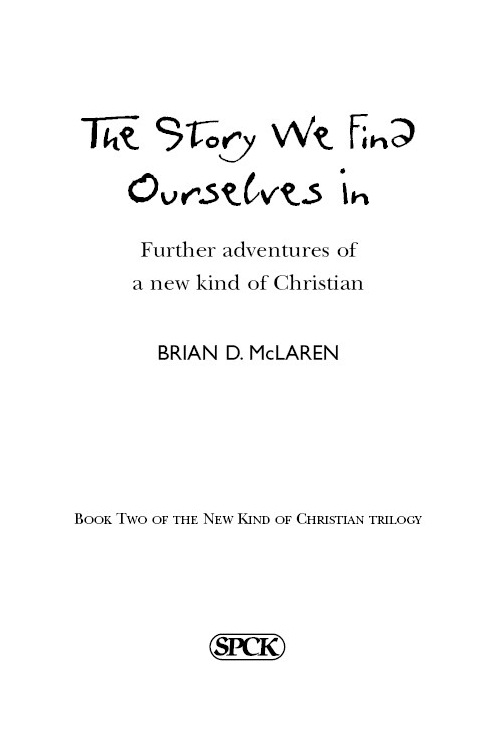First published in Great Britain in 2013
Society for Promoting Christian Knowledge
36 Causton Street
London SW1P 4ST
www.spckpublishing.co.uk
Copyright 2003, 2013 by Brian D. McLaren. All rights reserved.
AUTHORIZED REPRINT OF THE EDITION PUBLISHED BY JOHN WILEY & SONS, INC.
No part of this book may be reproduced in any form without the written permission of John Wiley & Sons, Inc. Requests to the publisher for permission should be addressed to the Permissions Department, John Wiley & Sons, Inc., 111 River Street, Hoboken, NJ 07030, 201-748-6011, fax 201-748-6008, or online at www.wiley.com/go/permissions.
Readers should be aware that internet websites offered as citations and/or sources for further information may have changed or disappeared between the time this was written and when it is read.
SPCK does not necessarily endorse the individual views contained in its publications.
This story is a work of fiction: all characters are creations of the author. Any resemblance to any real person, living or dead, is purely coincidental and unintended.
British Library Cataloguing-in-Publication Data
A catalogue record for this book is available from the British Library
ISBN 97 0699
eBook ISBN 97 0699
eBook by Graphicraft Limited, Hong Kong
Contents
A PARENT SHOULDNT HAVE favorite children, but I think an author can have a special feeling toward some of his or her books. The Story We Find Ourselves In has a special place in my heart, and Im not entirely sure why. It hasnt been among my best-selling books (so far), but I think it is one of my most important.
Since the late 1990s, I have found myself in the middle of a lot of religious deconstruction, as a growing community of us found ourselves questioning and dismantling the theological systems we had inherited. We were in search of something beyond them or beneath them or within them that somehow, we felt, was trapped or buried and needed to be set free. This quest of deconstruction has been vitally important, but it hasnt been fully satisfying for me. I dont simply want to live among the deconstructed fragments of unsatisfying systems, and I hate to see deconstruction unsettle people and cause them pain.
So in the midst of deconstruction I have felt the pull to try to reconstruct something from those fragments of the old systems. But I have sensed that what we need isnt a newer, better system of thought or belief; no, we need something more alive and dynamic and supple than a new and improved system: we need a storya story of a very particular type.
We do not need another exclusive story that seeks to vanquish, replace, or eradicate all other stories. From the story of the Roman Empire to the stories of the Enlightenment, Manifest Destiny, Nazism and Apartheid, Social Darwinism, and Materialist Capitalism and Marxism, we have seen the ugly denouement to which exclusive and dominating meta-narratives lead. Instead, we need a redeeming story in which other stories can find their highest meaning and their truest fulfillment.
My intuition has told me that this is what the Bible is for. It was not intended to serve as a repository for abstractions which must be mined from the text like chunks of marble and then arranged in straight rows to create an intellectual system that stands like an Egyptian pyramid or Roman coliseum. Nor was it intended to give us a crushing meta-narrative that destroys all competitors. It was intended to give us many local narratives, many stories of specific people in specific times and places, together inviting us to discern the threads of plot and meaning that run through them all, like a genetic code through generations, or like a musical theme in a song.
These threads, when woven together, can create a sacred universal story in which all the local stories can be welcomed home for a joyful holiday celebration. In coming home, they will, like the prodigal son, simultaneously experience humbling and a kind of glorification; they can in this way be born again.
When it became apparent that many readers of A New Kind of Christian were eager for a sequel, I knew that I should attempt a telling of the Biblical story in this way. And it made sense to tell the Biblical story within a contemporary story, and to set the story in the Galpagos Islands, which we commonly associate with Charles Darwin and his theoryor story, reallyof evolution.
I think many fundamentalist Christians have resisted Darwins theory because they felt that it invalidated the Genesis story; sadly, the result has too often been that young Christians like myself grow up in the church and are given an impossible choice: on the one hand, belief in a story that includes God but excludes the evidence found in fossils and finch beaks and tortoise shells and strands of DNA, or on the other hand, belief in a story that welcomes the data but excludes God. Back when I was a teenager faced with this unacceptable choice, I knew that I couldnt accept option A or B, but had to search for, or make if necessary, an option C.
Perhaps thats why this book is special to mebecause its fulfilling an urge that goes back to my coming of age and coming to faith. And perhaps its because I was able to include descriptions of the natural world in this bookmating tortoises and graceful sea lions and surf and stones and mistwhich for me have always been sacraments in which I encountered the glory of God. And perhaps there is also a distillation here of my life as a pastorbeing with people in illness and death, faith and doubt, love and rejection, conversion and renewaland somehow trying to discern in our wildly diverse stories the deep and common currents of the great story of creation and Creator that runs through us, and in which we live and move and have our being.
For all these reasons and probably some more I havent realized, I am truly happy that The Story We Find Ourselves In now has a chance in this paperback edition to find new readers. I am glad you are one of them now, and that, through this book, our stories, yours and mine, are now becoming in a new way connected.
This book is dedicated to Rachel, Brett, Trevor, and Jodi McLaren, whose father I am unspeakably proud to be. What an honor to be part of your stories, and to watch them unfold, as you each find your place in this mysterious, wonderful, meaningful story we find ourselves in.
FIRST, I THANK THE PEOPLE of Cedar Ridge Community Church (www.crcc.org), among whom I serve as a pastor. Much of the material presented in this book first appeared in a series of sermons given there, and many of the fictional conversations in this book were inspired by actual ones in this vibrant, courageous, and innovative community of faith. I know that for them, its difficult at times having me as a pastor: my ideas are at times a bit unconventional, I travel quite a bit, and my theological preoccupations can make me seem distant or inaccessible sometimes (like Im on another planet or something). Thanks for your flexibility, patience, love, collaboration, tolerance, understanding, and prayers.
Second, I wish to mention several writings that helped to inspire this book. Daniel Quinns Ishmael (Bantam, 1995), Orson Scott Cards Pastwatch (Tor, 1997), and Alan Dershowitzs The Genesis of Justice (Warner, 2001) stimulated new and fertile (if unorthodox) ways of reading the boo k of Genesis in the Bible. The poetry of Wendell Berry (especially The Timbered Choir [Counterpoint, 1999] and Selected Poems [Counterpoint, 1999]) celebrated a way of seeing creation that I hope I was able to follow in a few of these pages. Dallas Willards Divine Conspiracy (HarperSanFrancisco, 1998) encouraged me to think more deeply about the kingdom of God image in the teachings of Jesus, along with an apprenticeship model of Christianity.

